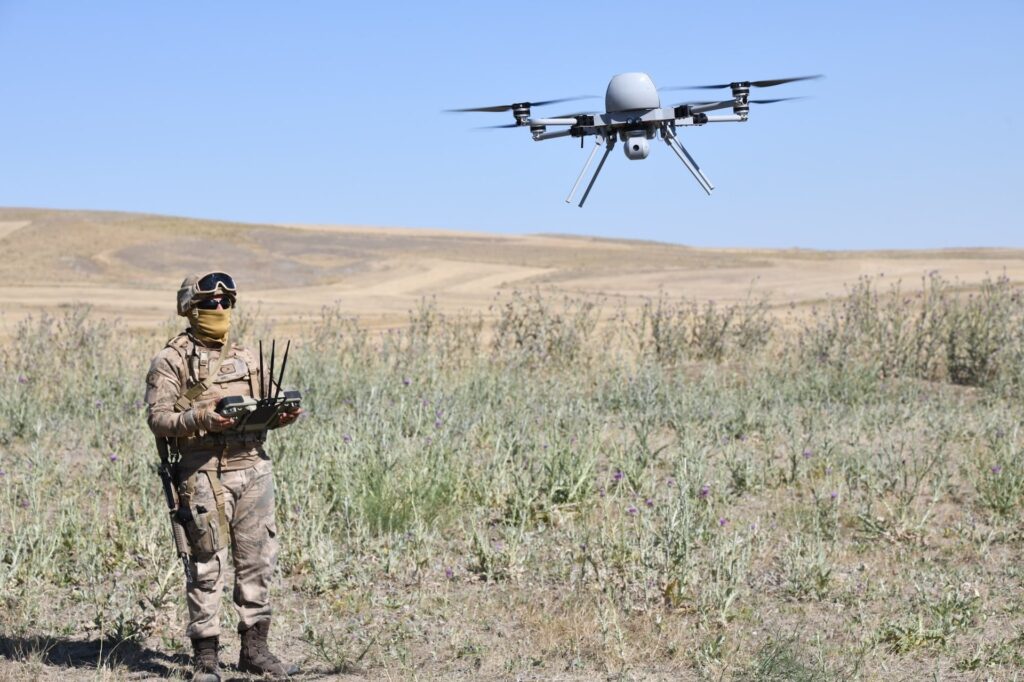From Burkina Faso to Sudan, drones have gained an ever-increasing role in conflicts, evolving from reconnaissance tools to nearly unstoppable airborne explosives. Now, experts worry, those same conflicts might become the testing ground for autonomous drones programmed to attack targets without human input.
Some argue that the continent already has seen its first killing by an autonomous drone. That was in 2020 in Libya, when a Turkish-made STM Kargu-2 equipped with facial recognition software pursued and killed forces loyal to Field Marshal Khalifa Haftar.
A United Nations investigation found inconclusive evidence that the drone, while capable of acting autonomously, actually did so. However, the story has become a cautionary tale for militaries and human rights groups concerned about the way in which a leap to autonomous drones — also known as lethal autonomous weapons systems (LAWS) — could change Africa’s security landscape.
“The question now is how the use of autonomous weapons will shape African conflicts in the future,” researchers Samuel Oyewole, Christopher Isike, Tony Oche and Ezenwa E. Olumba wrote in the Journal of Applied Security Research. “There is potential upside to the technology,” the researchers wrote. “But it will also heighten the risk of military accidents or abuses. Plus, it is only a matter of time before it falls into the wrong hands.”
Despite those concerns, the race to AI-powered autonomous drones appears to be picking up speed. Foreign governments, including Turkey and China, continue to sell their newest drone technology to African governments. However, many of those governments are at work on their own autonomous drone technology.
In May 2024, Moroccan King Mohammed VI called for refocusing military training programs to address AI challenges and opportunities. That came after an announcement by the Moroccan military in late 2023 that it wanted to work with Mohammed VI University of Technical Sciences to develop AI-enabled drones.
Nigeria’s Air Force, Army and Navy all have announced plans to harness AI, including AI-powered drones, to enhance their operations. Although Nigeria has not yet produced an autonomous drone, it recently announced it will collaborate with Ethiopia on new drone technology at Africa’s largest drone factory near Abuja.
South Africa, which produced one of the world’s first aerial drones in the 1970s, established the Defence Artificial Intelligence Research Unit (DAIRU) to bring together government, private and military resources for defense and security projects.
Based on the pace at which drone technology and the demand for it are evolving, it appears highly likely that Africa soon will see autonomous drones in its skies, experts say.
“The struggle to acquire weapons with autonomous features has become a reality in Africa,” Oyewole and his fellow researchers wrote. “Africa can become endangered, as suppliers of LAWS view the conflicts across the region as opportunities to sell, test, and assess their inventions.”
Advocates for autonomous drones promote their abilities to serve as mechanized scouts, gathering intelligence ahead of military actions without the need for an operator. Critics say that aerial weapons with their own decision-making capabilities increases the incentive for violence without the accountability a human operator would face when making the decision to kill another person.
LAWS technology in the hands of authoritarian rulers presents an added problem: that they will turn it against their own citizens in violation of the law and human rights.
“While LAWS could be designed and programmed to avoid unintended targets, their abilities to do justice in the face of orders to eliminate noncombatants are debatable,” Oyewole and his fellow researchers wrote.
There’s also the likelihood that LAWS technology will fall into the hands of terrorists and other insurgent groups, according to analyst Kyle Hiebert.
Autonomous weapons could enable those groups to reach beyond the front lines to targets closer to the heart of the governments they seek to destabilize, Hiebert wrote for the Institute for Security Studies.
“Autonomous weapons systems will arrive in Africa sooner or later,” Hiebert wrote. “And the window to shape international norms around them is very narrow. Without a clear African voice in global AI governance, the continent will likely become a proving ground and a casualty for others’ technological ambitions.”

